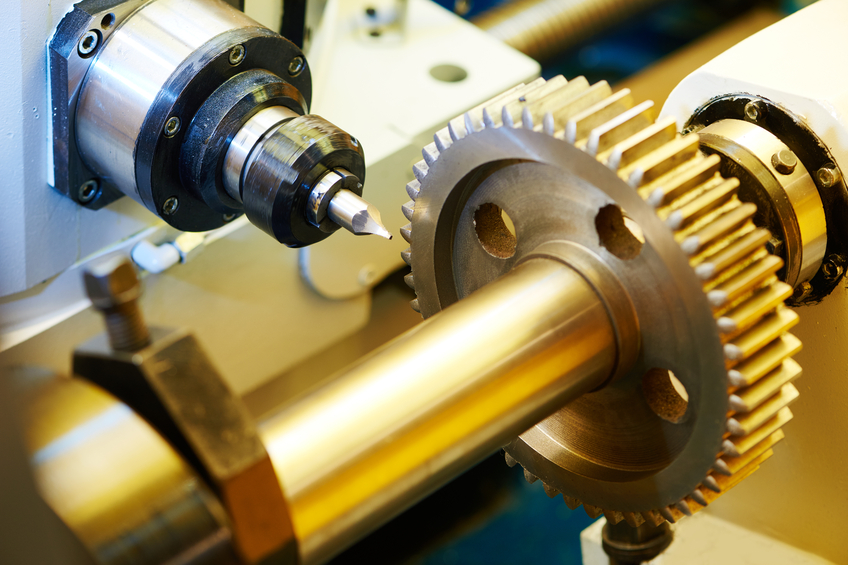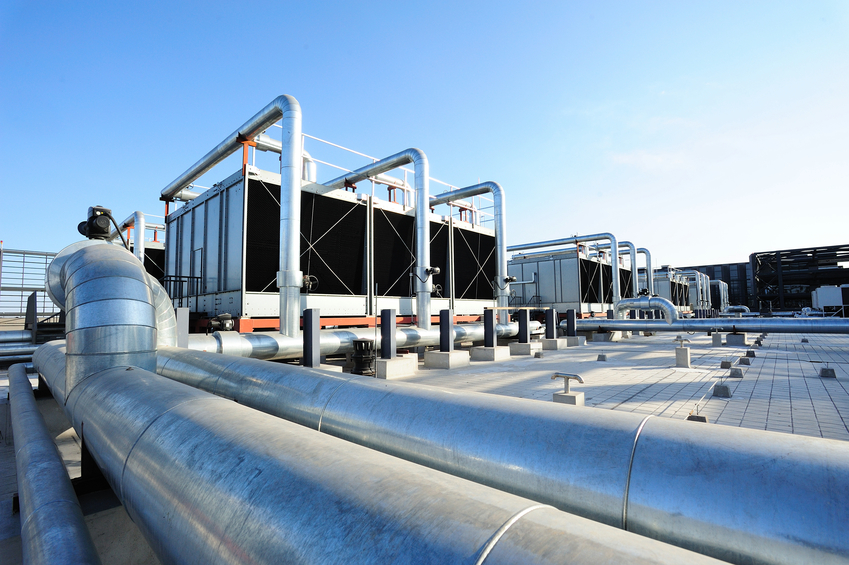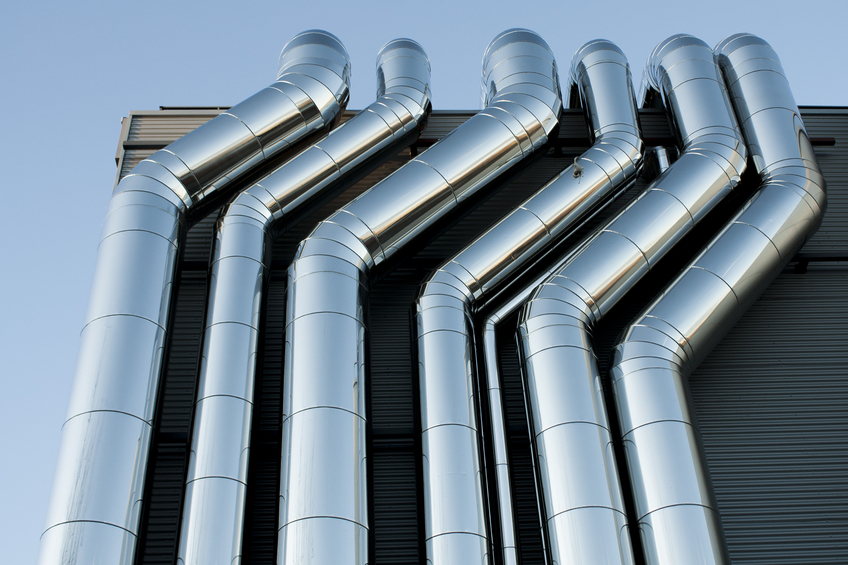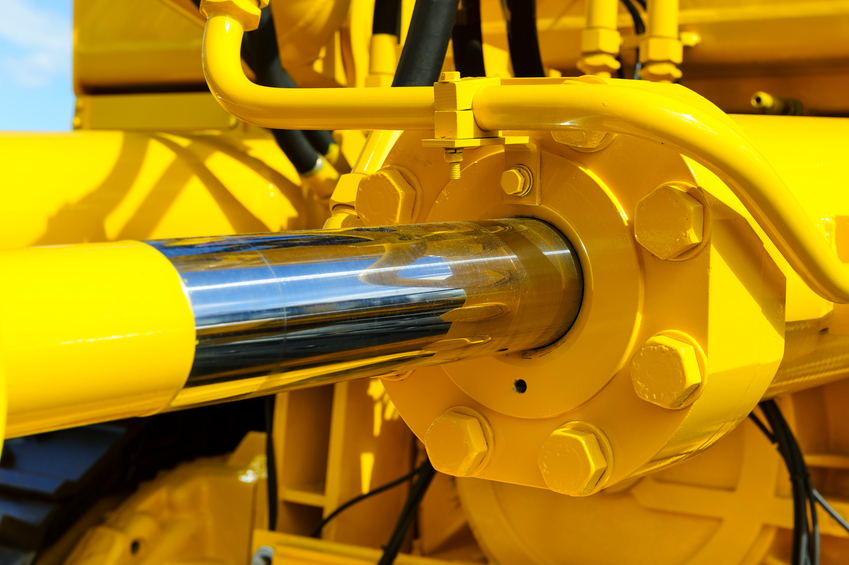Indiana Mechanical and Laws/Rules/Ethics 30 PDH Discount Package 2
Basic Machines Part 1 (M03-035)
Basic Machines Part 2 (M03-036)
Fundamentals of Gas Turbine Engines (GTEs) (M04-041)
Air Distribution Basics and Duct Design (M03-044)
Steam Distribution Systems (D02-008)
Principles of Hydraulic and Pneumatic Systems (M04-043)
Miscellaneous Mechanical Equipment (M05-001)
Cooling Tower Key Components and How to Improve Water Efficiency (M01-018)
Engineering Laws, Rules and Ethics for Indiana Professional Engineers (IN2-005)

This online engineering PDH course presents the basics of modern mechanics developed by Sir Isaac Newton in the late seventeenth century. This course describes the effect of static and dynamic forces on objects and includes a discussion of the forces commonly encountered in daily life. Also this course defines energy, work and power; identifies their various forms; and discusses the conservation of energy, work, and power including the measurement and calculation of each.
This 3 PDH online course is applicable to mechanical and civil engineers, facility and maintenance personnel, and other technical staff who are interested in understanding the principles of engineering mechanics.
This PE continuing education course is intended to provide you with the following specific knowledge and skills:
- Understanding Newton's Law of motion
- Learning the Principles of Momentum
- Understanding the applications of Newton's Law including force and weight, free body diagrams, forces of equilibrium, and types of forces
- Learning the principles of Energy, Work and Power
- Understanding the Law of Conservation of Energy
In this professional engineering CEU course, you need to review Modules 3, 4 and 5 of the Department of Energy Publication DOE-HDBK-1010-92, "Classical Physics" published by the Department of Energy.
Upon successful completion of the quiz, print your Certificate of Completion instantly. (Note: if you are paying by check or money order, you will be able to print it after we receive your payment.) For your convenience, we will also email it to you. Please note that you can log in to your account at any time to access and print your Certificate of Completion.

This online engineering PDH course discusses the six simple machines: the lever, the block, the wheel and axle, the inclined plane, the screw and the gear. When you familiarize with the principles of these simple machines, you can readily understand the operation of complex machines.
A machine is any device that helps you to do work. It may help by changing the amount of force or the speed of action. Machines may also be used to change the direction of a force or in other cases transform energy; for example, a generator transforms mechanical energy into electrical energy. Complex machines are basically combinations of two or more simple machines.
This 3 PDH online course is applicable to engineers, designers, manufacturers and anyone interested to gain an understanding of basic machine operation.
This PE continuing education course is intended to provide you with the following specific knowledge and skills:
- Learning about the principles of levers, their different classes and mechanical advantages
- Understanding the basics of the block and tackle, their different configurations and mechanical advantages
- Understanding the basics of wheel and axle and understand their mechanical advantages
- Learning about the mechanical advantages of inclined planes
- Familiarizing with the uses of the screw and jack
- Understanding the basics of gears, their different types and mechanical advantages
In this professional engineering CEU course, you need to review Chapters 1 through 6, of the Naval Education and Training Professional Development and Technology Center "Basic Machines" NAVEDTRA 14037 - training course.
Once you complete your course review, you need to take a multiple-choice quiz consisting of twenty (20) questions to earn 3 PDH credits. The quiz will be based on this NAVEDTRA publication.
Upon successful completion of the quiz, print your Certificate of Completion instantly. (Note: if you are paying by check or money order, you will be able to print it after we receive your payment.) For your convenience, we will also email it to you. Please note that you can log in to your account at any time to access and print your Certificate of Completion.

This online engineering PDH course discusses the relationship between Work and Power and their different their applications. It also describes the relationship between Force-Pressure and their different applications. Furthermore, this course explains the basics of hydrostatic and hydraulic liquids and highlights their respective machines. The last chapter of this course illustrates the basic machine elements, identifies their respective machine functions and introduces the basics of clutches.
A machine is any device that helps you to do work. It may help by changing the amount of force or the speed of action. Machines may also be used to change the direction of a force or in other cases transform energy; for example, a generator transforms mechanical energy into electrical energy.
This 3 PDH online course is applicable to engineers, designers, manufacturers and anyone interested to gain an understanding of basic machine operations.
This PE continuing education course is intended to provide you with the following specific knowledge and skills:
- Understanding the relationship between Work and Power and their different applications
- Learning how to determine horsepower ratings
- Understanding the difference between Force and Pressure and their applications in basic machines
- Familiarizing with the different force and pressure measuring devices
- Understanding the difference between hydrostatic and hydraulic liquids and their applications in basic machines
- Understanding the basic machine elements and identifying their respective functions
- Learning about clutch basics
In this professional engineering CEU course, you need to review Chapters 7 through 11, of the Naval Education and Training Professional Development and Technology Center "Basic Machines" NAVEDTRA 14037 - training course.
Once you complete your course review, you need to take a multiple-choice quiz consisting of twenty (20) questions to earn 3 PDH credits. The quiz will be based on this NAVEDTRA publication.
Upon successful completion of the quiz, print your Certificate of Completion instantly. (Note: if you are paying by check or money order, you will be able to print it after we receive your payment.) For your convenience, we will also email it to you. Please note that you can log in to your account at any time to access and print your Certificate of Completion.

This online engineering PDH course introduces the history and development of gas turbine engines (GTEs).
This course will help you become familiar with the basic concepts used by GTE designers, follow discussions of how the Brayton cycle describes the thermodynamic processes in a GTE, and learn how various conditions and design limitations affect GTE performance. This course also discusses how a GTE develops and uses hot gases under pressure.
This 4 PDH online course is applicable to engineers, designers, manufacturers and anyone who wants to gain an understanding of the basics of gas turbine engines. After completing the course, you should have the basic knowledge to be able to describe the principal components of GTEs and their construction, the GTE auxiliary systems, and also be familiar with the nomenclature related to GTEs and GTE technology.
This PE continuing education course is intended to provide you with the following specific knowledge and skills:
- Understanding the principles and basic concepts of a GTE
- Understanding how the Brayton cycle describes the thermodynamic processes in a GTE
- Learning how various conditions and design limitations affect GTE performance
- Understanding how a GTE develops and uses hot gases under pressure
- Familiarizing with the principal components of GTEs and their construction
- Familiarizing with the GTE auxiliary systems and the nomenclature related to GTEs and GTE technology
In this professional engineering CEU course, you need to review Chapter 1, “Fundamentals of Gas Turbine Engines” of the Naval Education and Training Professional Development and Technology Center “Gas Turbine Systems Technician (Electrical) 3/Gas Turbine Systems Technician (Mechanical) 3, Volume 2” NAVEDTRA 14114-training course.
Upon successful completion of the quiz, print your Certificate of Completion instantly. (Note: if you are paying by check or money order, you will be able to print it after we receive your payment.) For your convenience, we will also email it to you. Please note that you can log in to your account at any time to access and print your Certificate of Completion.

This online engineering PDH course discusses the information needed to design the air distribution system to deliver the proper amount of conditioned air to a space in an energy efficient house.
The heating, ventilation, and air-conditioning (HVAC) system is arguably the most complex system installed in a house and is responsible for a substantial component of the total house energy use. A properly sized HVAC system will provide the desired comfort and will run efficiently. Right-sizing an HVAC system includes the selection of equipment and the design of the air distribution system to meet the accurate predicted heating and cooling loads of the house. This process begins with an accurate understanding of the heating and cooling loads on a space; however, a full HVAC design involves more than just the load estimate calculation; the load calculation is the first step of the iterative HVAC design procedure.
This 3 PDH online course is intended for mechanical engineers, architects, contractors and other professionals interested in learning more about air distribution and duct design for energy efficient homes.
This PE continuing education course is intended to provide you with the following specific knowledge and skills:
- Learning the different terminologies and concepts of HVAC systems that relate to air distribution
- Understanding the performance criteria related to air distribution systems, which include temperature mixing and uniformity, supply outlets, and noise considerations
- Understanding the design benefits of integrating the HVAC system into the early schematic design phase of the house
- Familiarizing with the design principles of distribution systems, which include pressure drop, supply requirements, return air design, supply air outlets, duct layout, and duct sizes
Upon successful completion of the quiz, print your Certificate of Completion instantly. (Note: if you are paying by check or money order, you will be able to print it after we receive your payment.) For your convenience, we will also email it to you. Please note that you can log in to your account at any time to access and print your Certificate of Completion.

This online engineering PDH course provides a basic description of the steam distribution systems along with an overview of the main associated components.
A steam boiler is virtually useless for heating without a good distribution system that transports the steam to the areas that require heating. In this course, the term distribution system refers to the network of piping required to distribute steam from a boiler room (or boiler plant) through the steam pipes to the equipment using the steam. The course discusses both exterior and interior systems, including their maintenance requirements and various associated components.
This 2 PDH online course is applicable to industrial and mechanical engineers as well as technical personnel interested in gaining a better understanding of steam distribution systems.
This PE continuing education course is intended to provide you with the following specific knowledge and skills:
- Understanding the different types of exterior steam distribution systems
- Familiarizing with the different types of interior steam distribution systems
- Learning the basic components of steam distribution systems as well as their operation and maintenance considerations
Upon successful completion of the quiz, print your Certificate of Completion instantly. (Note: if you are paying by check or money order, you will be able to print it after we receive your payment.) For your convenience, we will also email it to you. Please note that you can log in to your account at any time to access and print your Certificate of Completion.

This online engineering course presents the basic principles of hydraulics and pneumatics along with their various components followed by discussing the maintenance procedures associated with these systems.
In automotive and construction equipment, the terms “hydraulic” and “pneumatic” describe a method of transmitting power from one place to another through the use of a liquid or a gas which obey certain physical laws and principles discussed in this course.
This 4 PDH online course is intended for mechanical and industrial engineers, as well as other technical professionals interested in gaining a better understanding of the principles of hydraulic and pneumatics systems.
This PE continuing education course is intended to provide you with the following specific knowledge and skills:
- Understanding the operating principles of hydraulic systems
- Identifying operation characteristics, component functions, and maintenance procedures of a hydraulic system
- Understanding the operating principles of pneumatic systems
- Identifying operational characteristics and service procedures applicable to heavy-duty compressors
Upon successful completion of the quiz, print your Certificate of Completion instantly. (Note: if you are paying by check or money order, you will be able to print it after we receive your payment.) For your convenience, we will also email it to you. Please note that you can log in to your account at any time to access and print your Certificate of Completion.

This online engineering PDH course provides a fundamental understanding of the purpose, types and operation of various mechanical equipment that have widespread applications in many facilities. This equipment includes cooling towers, air compressors, hydraulic systems, boilers, demineralizers, pressurizers, steam traps, filters and strainers. In addition, this course describes the safety hazards associated with certain types of components.
This 5 PDH online course is applicable to mechanical and chemical engineers, nuclear facility operators, maintenance personnel, and other technical staff who are interested in gaining a better understanding of the operation of the different mechanical equipment.
This PE continuing education course is intended to provide you with the following specific knowledge and skills:
- Understanding various types of air compressors, operation and safety hazards.
- Understanding hydraulic system operation and safety hazards
- Familiarizing with boilers
- Learning the purpose of the cooling tower and its various types
- Understanding the purpose and types of deminerilizers
- Knowing the general description and operation of a pressurizer
- Learning the fundamentals of steam traps and their different types
- Distinguishing between filters and strainers and learning their different types
In this professional engineering CEU course, you need to review DOE-HDBK-1018/2-93, Volume 2, Module 5 "Miscellaneous Mechanical Components" published by the Department of Energy.
Upon successful completion of the quiz, print your Certificate of Completion instantly. (Note: if you are paying by check or money order, you will be able to print it after we receive your payment.) For your convenience, we will also email it to you. Please note that you can log in to your account at any time to access and print your Certificate of Completion.

This online engineering PDH course provides a basic understanding of cooling towers, describes their key components and provides recommendations on how to improve the water efficiency.
Cooling towers are an integral component of many refrigeration systems, providing comfort or process cooling across a broad range of applications. They are the point in the system where heat is dissipated to the atmosphere through the evaporative process, and are common in industries such as oil refining, chemical processing, power plants, steel mills, and many different manufacturing processes where process cooling is required.
This 1 PDH online course is intended for mechanical and environmental engineers as well as others interested in learning more about cooling towers and how to improve their water efficiency.
This PE continuing education course is intended to provide you with the following specific knowledge and skills:
- Understanding the basic cooling tower terms
- Learning the different types of cooling towers
- Learning the system calculations
- Understanding the factors that limit cycles of concentration
- Knowing the system concerns
- Familiarizing with the treatment options
Upon successful completion of the quiz, print your Certificate of Completion instantly. (Note: if you are paying by check or money order, you will be able to print it after we receive your payment.) For your convenience, we will also email it to you. Please note that you can log in to your account at any time to access and print your Certificate of Completion.

This online engineering PDH course presents the laws and rules of ethics and professional responsibility governing the practice of engineering in the State of Indiana. Excerpts from the Indiana Code (Title 25, Article 31) and the Indiana Administrative Code (Title 864) including licensing renewal, proper use of the engineer’s seal, continuing education requirements and other pertinent regulatory provisions are presented in this course.
Since engineers are faced with frequent moral and ethical dilemmas while practicing their engineering profession, this course will provide you with moral and ethical guidance in your decision making process. Most importantly, it will provide you with insight on how to conduct, respect and protect your engineering practice with the utmost professionalism.
This 2 PDH online course is applicable to Professional Engineers licensed in the State of Indiana and who are required to demonstrate continuing professional competency in engineering laws, rules and ethics as a condition of their license renewal. For each renewal period, every licensee must complete thirty (30) professional development hours, at least one (1) of which must be relative to the Indiana Laws and Rules, and at least one (1) of which must be relative to the rules of professional responsibility, conduct and ethics.
This PE continuing education engineering course is intended to provide you with the following specific knowledge and skills:
- Familiarizing with the laws and rules regulating the practice of engineering in the State of Indiana
- Understanding the license renewal process, continuing education requirements, proper use of seal and other pertinent provisions
- Understanding the role of the Indiana Board and its disciplinary authority
- Learning about engineering ethics and the rules of professional conduct and responsibility
Upon successful completion of the quiz, print your Certificate of Completion instantly. (Note: if you are paying by check or money order, you will be able to print it after we receive your payment.) For your convenience, we will also email it to you. Please note that you can log in to your account at any time to access and print your Certificate of Completion.